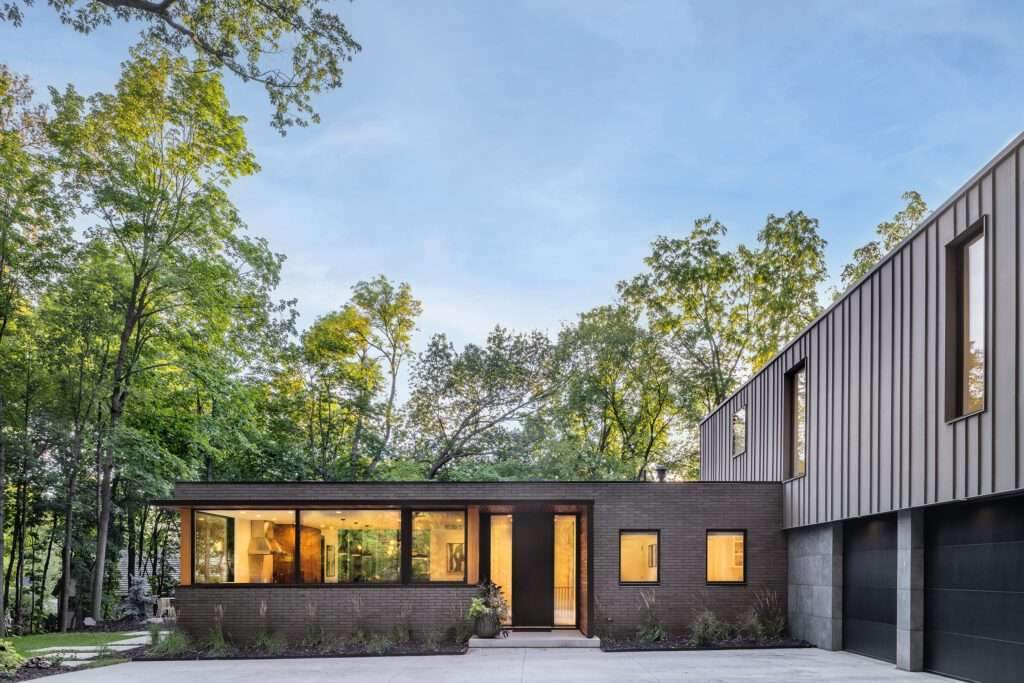“Good Food, Good Life” is an adaptive reuse project that reevaluates modern capitalistic goals and advocates circularity and inclusivity through the “Virtuous Food Cycle” concept. Designed in alignment with C40’s design priorities for the 10 climate challenges, it re-introduces Nature as an integral Partner in the kindred-friendly recreational node.
Architizer chatted with Yann Follain from WY-TO Group to learn more about this project.
Architizer: What inspired the initial concept for your design?
Yann Follain: The adaptive reuse project is conceptualized to address Singapore’s food scarcity and meet her “30-by-30” independent food production plan by 2030. The project introduces the idea of reconnection with People, Nature and Heritage with Singapore’s Green Plan efforts for “City in Nature”, as well as its site context, the former Bukit Timah Fire Station. Strong restorative, circularity and sustainability elements are embedded within the concept. The gazetted fire station set the framework’s narrative while the immediate proximity to the nature reserve inspired the “Virtuous Food Cycle”. This informed “Communi-trail”, a 4-step ground-up approach which connects us to our plates’ agriculture chain. Its key pillars of Initiate, Transform, Share, Recover, complement the top-down intensification of Agrotechnology while working to influence lifestyle change, for and with Nature.
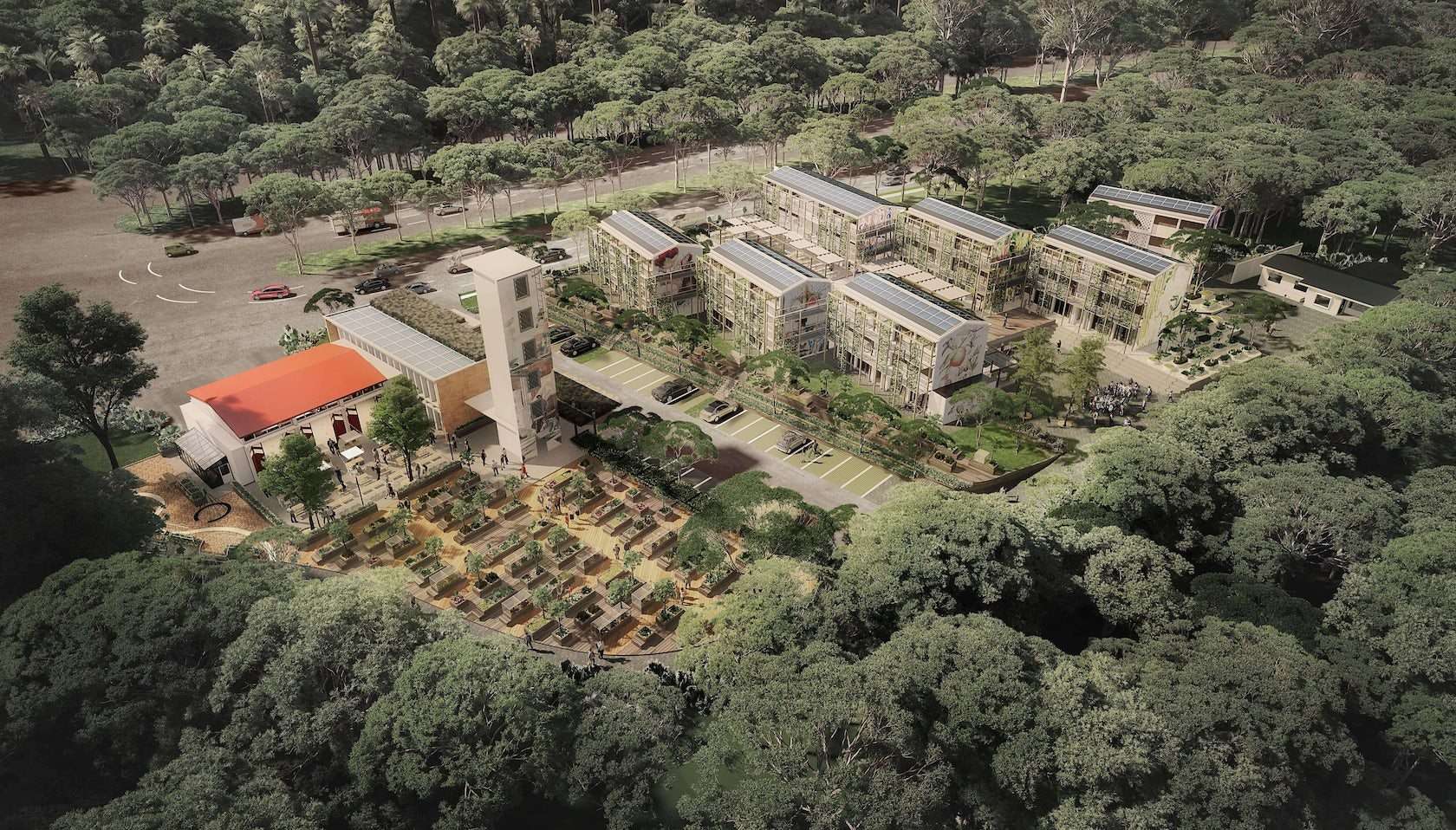
© WY-TO Group
What do you believe is the most unique or ‘standout’ component of the project?
The act of keeping in “As-Is” condition. There is no iconic feature construction nor is there any major modification. The architectural gesture lies in its Programming. It showcases diverse Partners, Collaborators and Contributors moving with Circularity in mind. The manner in which we have curated the tenants, participants, etc. work to support and benefit from one another. Planned programmes stem from zero-waste consumption which assists “Good Food, Good Life”’s bigger advocacy for climate change. This is fundamental in guiding us and enabling our recognition in the Reinventing Cities by the global Climate Leadership Group, C40 Cities. The project takes on people-centricity in its strategy to achieve lasting results of net-zero emission and decarbonization. It empowers the community to pivot change and addresses the 10 Climate Challenges by C40 Cities. It functions for and with People.
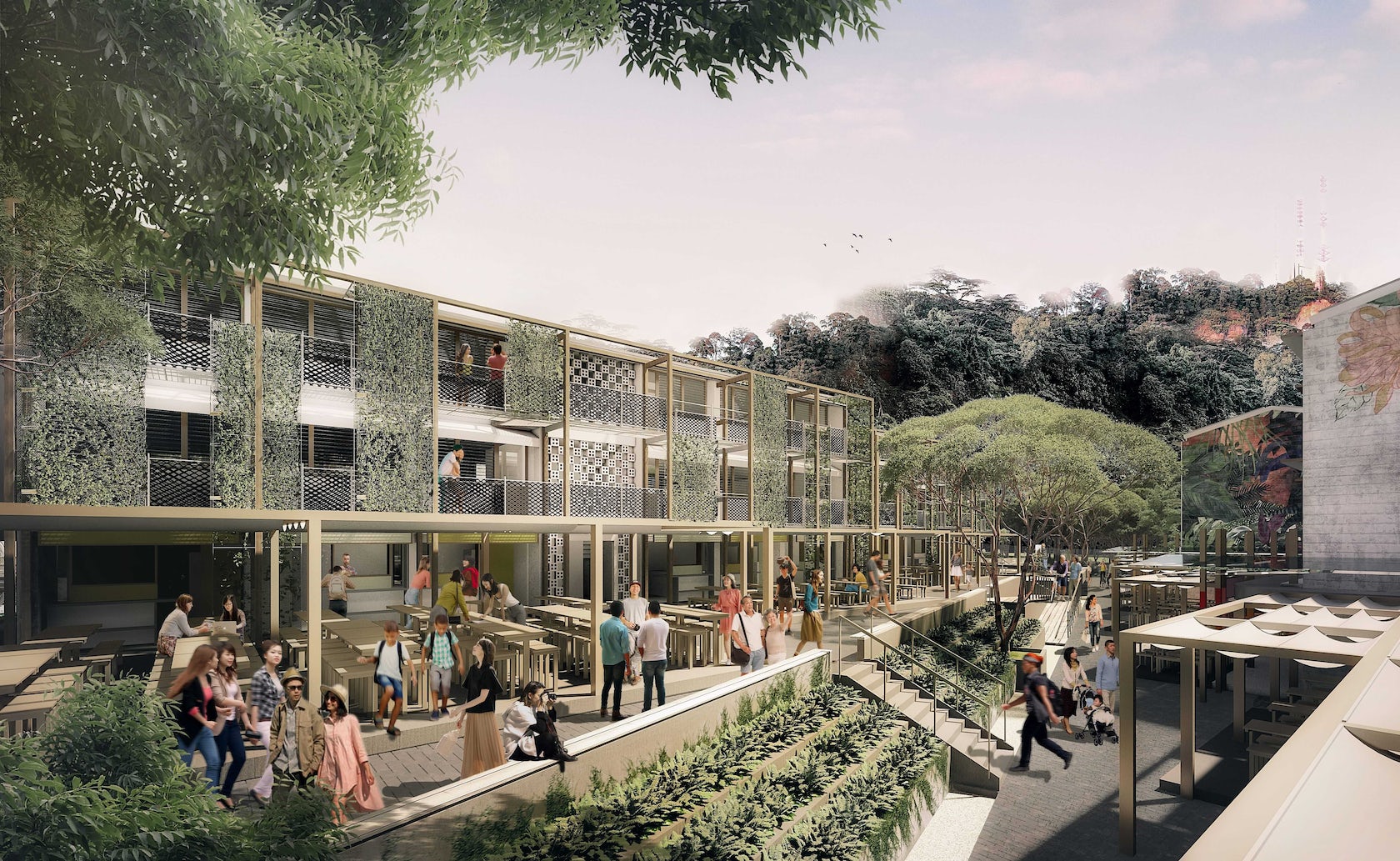
© WY-TO Group
What was the greatest design challenge you faced during the project, and how did you navigate it?
The challenge is making a historical monument relevant to current times while keeping to the goal of net-zero emissions in an equatorial climate.
The typical formula would be relying on active systems like air-conditioning to regulate heat. Therefore, we needed to think innovatively about the passive and bioclimatic strategies to assist the existing built structure in becoming climatically relevant. Furthering that is the rich and dense nature reserve right beside it. This entails higher humidity levels contributing towards a structure’s wear and tear. Thus, we needed to tailor our design interventions to anticipate challenges and extend the scope past preserving architectural qualities. They needed to be holistic in thought and deed so that it is able to sustain in the long haul.

© WY-TO Group
How did the context of your project — environmental, social or cultural — influence your design?
Located next to Singapore’s oldest nature reserve, Bukit Timah Nature Reserve, the site has naturally integrated itself as part of the wild fauna ecosystem. The fire station will reopen as a green community node, thus, our strategies have to look toward accommodating the monkeys, boars, snakes and insects to achieve harmonious co-existence. We have to design ahead and program interaction education. It is a delicate balance that we have to consistently synchronize with the community. Thus, our design framework structures our actions to work in tangent with the natural order of the environment and educates the community in the same direction.
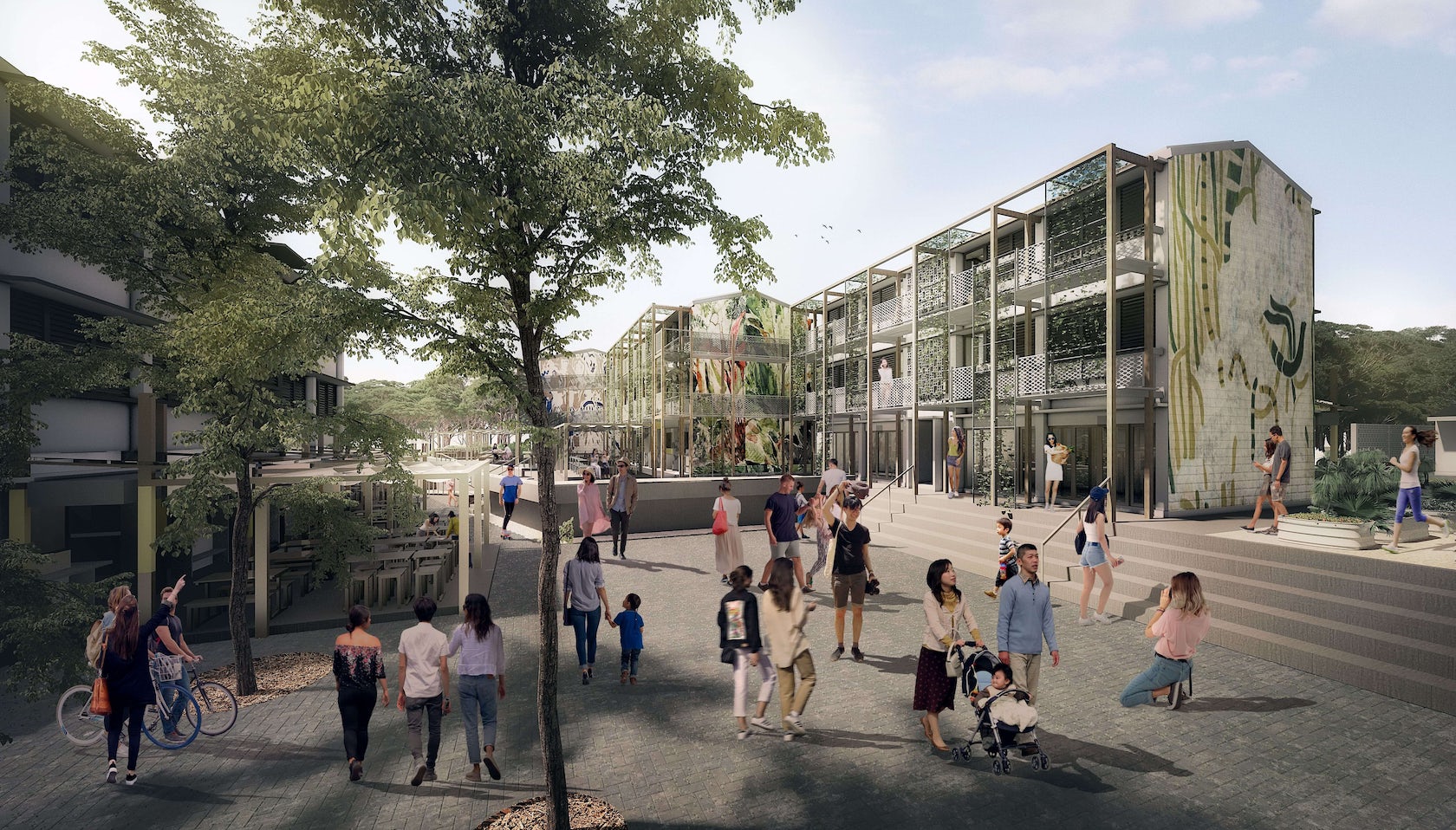
© WY-TO Group
How important was sustainability as a design criteria as you worked on this project?
It is a fundamental principle for “Good Food, Good Life”. Being the first Southeast Asia project that has won the C40 Reinventing Cities Competition, this project is developed with its 10 Climate Challenges in mind. This aligned all our design priorities and focused our solutions to pivot away from mitigating climate impacts as an afterthought. Instead, it placed our intentions on contextually adapting to optimize the value of our intervention. Thus the idea of circularity and sustainability intuitively ingrained itself within our programme.
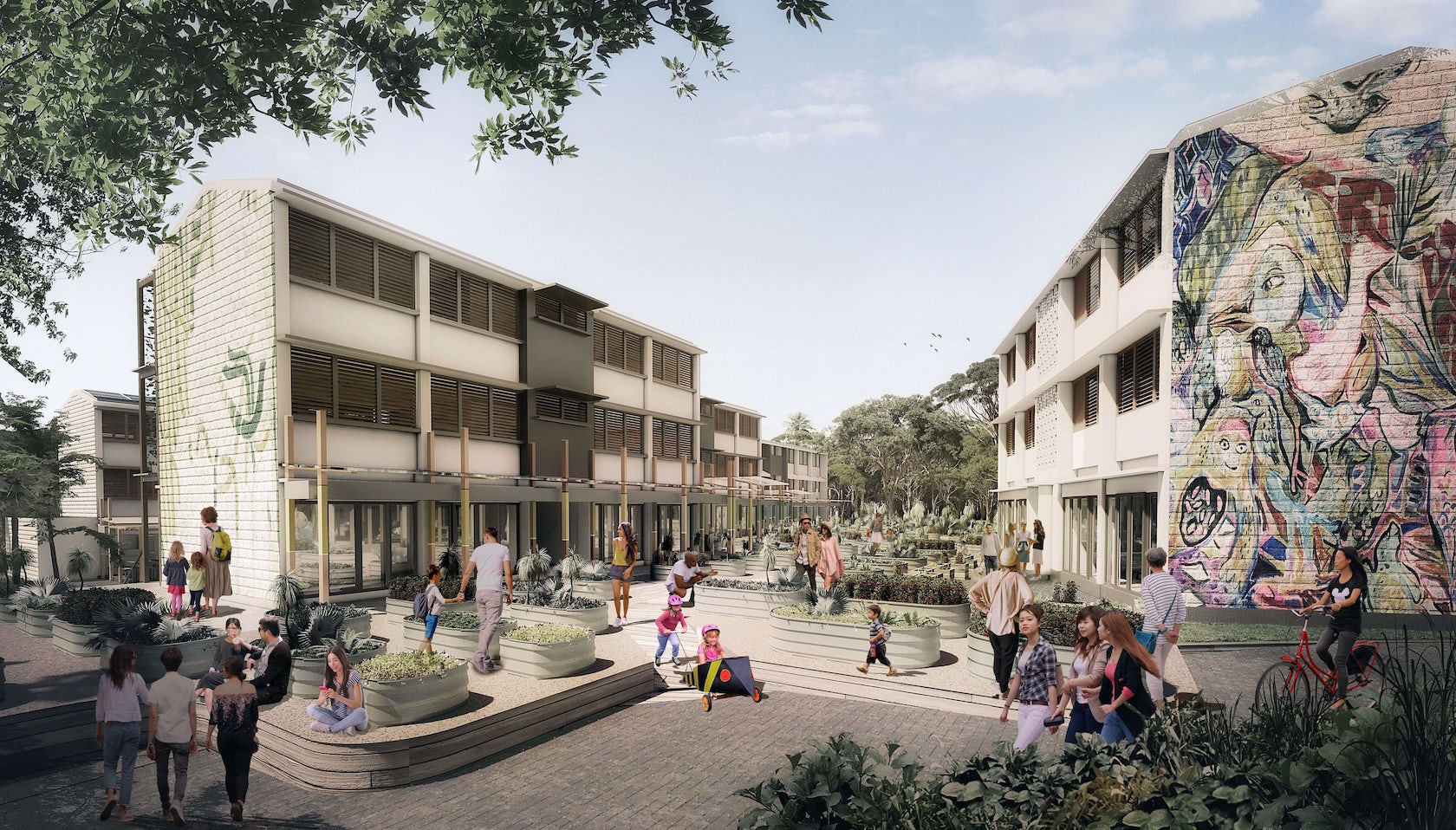
© WY-TO Group
In what ways did you collaborate with others, and how did that add value to the project?
Good Food, Good Life is an expansive multi-disciplinary and collaborative project. Conservation Specialist, Consultants, Partners, Architect, Engineers, Place-makers, Urban Farmers and more, have been brought in to define the boundary of design. Each Team member’s expertise is leveraged to assist the other aspects. They individually complement one another to shape the project’s experiential outcome. This trickles to influence the curation of tenants, thereby making Good Food, Good Life the first of its kind in Singapore public compound to adopt a holistic way of approach throughout its processes.
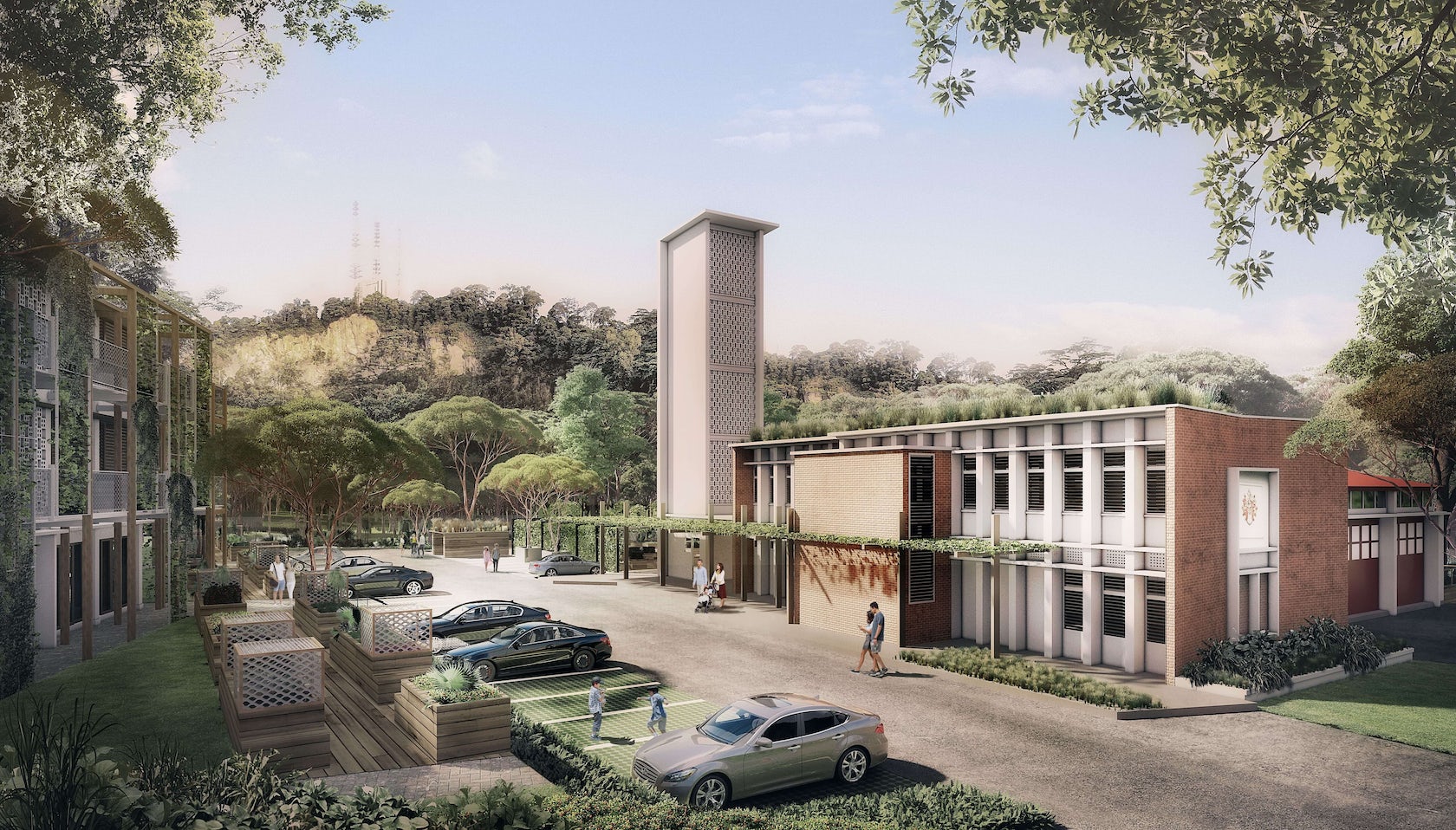
© WY-TO Group
How do you believe this project represents you or your firm as a whole?
It demonstrates our climate fight advocacy, aligned with our 6 Green Commitments for the built environment. Good Food, Good Life intrinsically represents who WY-TO is as designers, our advocacy in motivating ground-up active engagement in the process, and the commitment we have for People, the Environment and our Collective Heritage. It is a project that weaves in the WY-TO spirit at every phase. A project telling of our common ambition in empowering future-forward places to be equitable, inclusive and resilient.
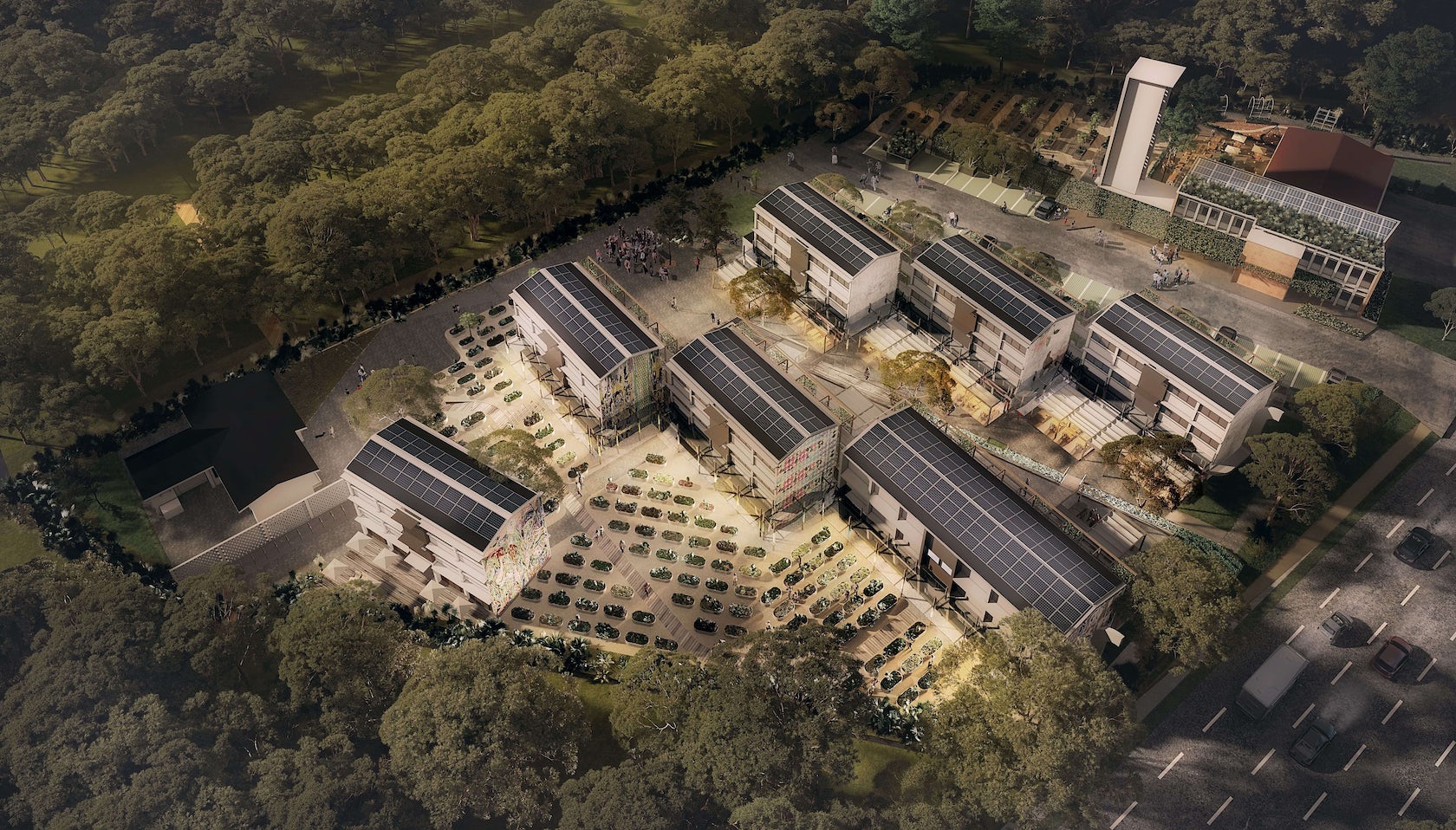
© WY-TO Group
How do you imagine this project influencing your work in the future?
“Good Food, Good Life” is a step in our future built environment plans. While it is smaller in scale as compared to projects at large, it is the pioneer of its kind in Singapore. The project is at the forefront of responding to the country’s urgent climate calls with the effects of global warming through torrential rains, flooding, and increase in weather temperatures being more evident recently. “Good Food, Good Life” is akin to our official founding step in the holistic deployment of sustainability throughout in answering climate change calls. This project has spearheaded many of our current participation in innovative projects, competitions and tenders that stem from the sustainable vein from France, Singapore, South Africa, Dubai, and more. It is our green anchor in motivating our projects’ directions.

© WY-TO Group
Is there anything else important you’d like to share about this project?
Good Food, Good Life is the first 3rd place project in Singapore to adopt a People, Planet, Places integrative approach. We hope that by pioneering such a human-centric framework, we will be able to holistically empower the community to take action from ground-up and influence top-down policies.
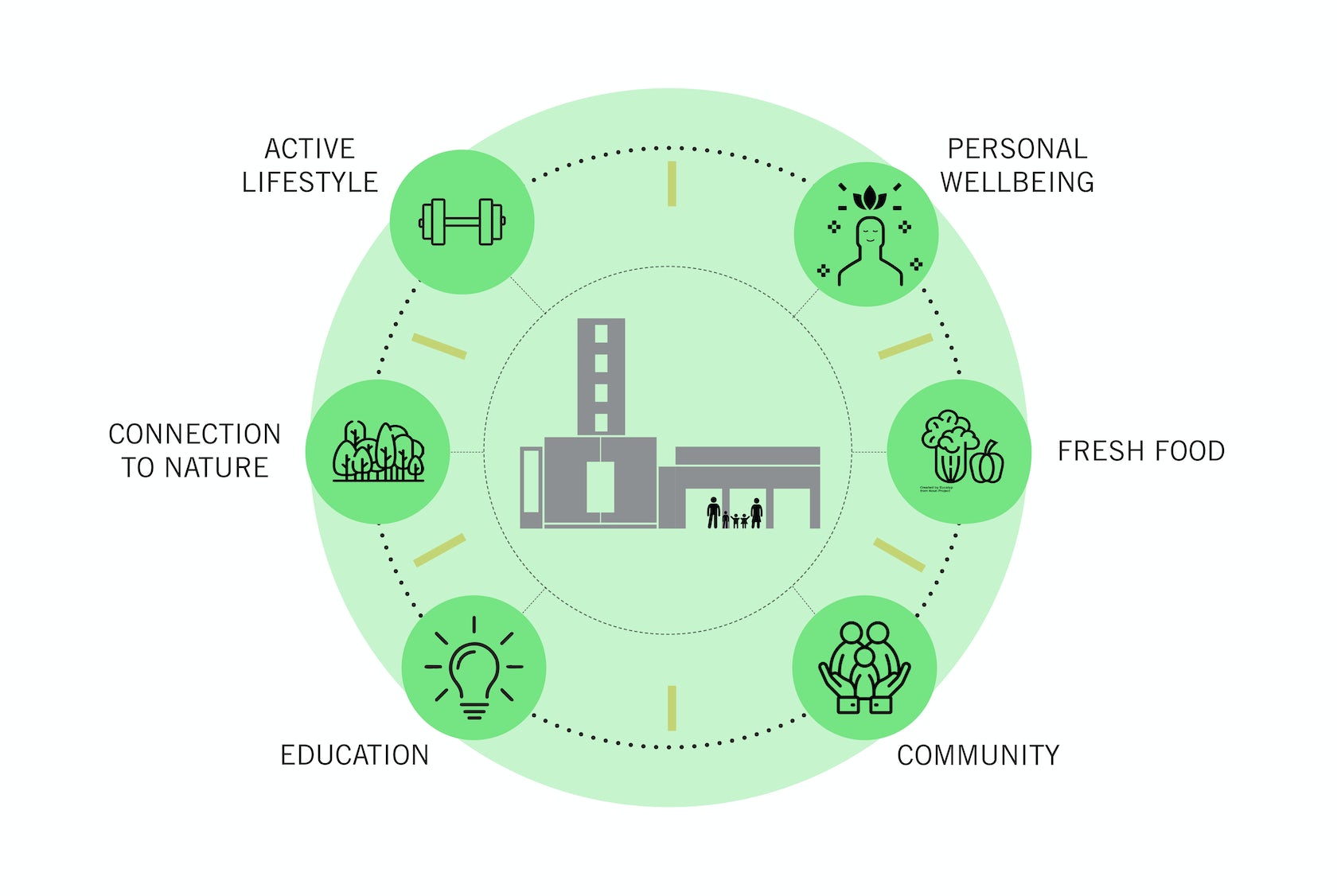
© WY-TO Group

© WY-TO Group
Team Members
Provolk (Architect)
Consultants
Studio Lapis (Conservation Specialist), Building System & Diagnostics (Environmental Engineer), IEM Engineering Consultants (M&E Engineer), BKG Consultants (Quantity Surveyor), Land Design One (Landscape Architects), Shophouse & Co (Place-makers)
For more on Good Food, Good Life, please visit the in-depth project page on Architizer.
GOOD FOOD, GOOD LIFE – C40 Reinventing Cities Winner Gallery

